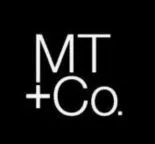Summary
On September 6, 2017 the British Columbia Securities Commission ("BCSC") announced the first registration in Canada of a cryptocurrency investment fund manager. First Block Capital Inc. ("First Capital") has been granted registration by the BCSC as an investment fund manager and exempt market dealer in order to operate a bitcoin investment fund.
First Capital, in partnership with Vancouver crowdfunding portal FrontFundr (Silver Maple Ventures Inc.), had announced in July, 2017 that is would launch Canada Bitcoin Trust, an investment fund designed to allow investors to buy into bitcoin. The Canada Bitcoin Trust was slated to be funded through the FrontFundr crowdfunding porting, relying on the Start-up Crowdfunding Registration and Prospectus Exemptions. The FrontFundr campaign was put on hold soon after it was announced however, likely due to compliance issues with the BCSC. The Canada Bitcoin Trust has not re-appeared on FrontFundr's website at the date of this writing.
In granting the registration, the BCSC imposed conditions on First Capital's Canada Bitcoin Trust because of the unique nature and risks of cryptocurrency investments. First Capital will have additional reporting requirements concerning its oversight of the custodians and brokers it uses to buy and hold Bitcoin. In its announcement, the BCSC stated that it is strongly encouraging other BC companies wishing to engage in cryptocurrency investment through their investment funds to engage with the BCSC Tech Team to ensure compliance with securities regulations.
Details
You may be asking yourself: "What exactly is a cryptocurrency?" and "Why should the BCSC care about investment funds buying bitcoin?"... or perhaps "What did I just read!?"
If that's the case, I'll assume you may not know what blockchains, cryptocurrencies, bitcoins, investment funds, exempt market dealers, and crowdfunding portals are. Therefore, I've taken the liberty to provide some background below. The uber-nerds who understand this stuff already can skip to the bottom.
Blockchain, Crypto, and Bitcoin...oh my!
In case you've been avoiding any sort of technology news for the past five or so years, you may not have heard of blockchain technology. More likely however, is that you've heard "blockchain" or "cryptocurrency" or "bitcoin" used a hundred times without understanding exactly what they are and why they are incredibly innovative and important.
Blockchain
Blockchain technology ("Blockchain") was created by Satoshi Nakamoto (likely not a real individual but instead a pseudonym for a group of cryptography and computer science experts living in the United States and Europe), in around 2008 (along with Bitcoin, the first cryptocurrency). Blockchain is an (almost) incorruptible digital ledger or "database" which is shared and continuously updated among all of its users. The Blockchain database isn't stored in any one location which means there is no centralized version of the ledger. It's instead hosted by millions of computers simultaneously and its data is public and easily verifiable to anyone on the internet with access (most blockchain applications are open to the public but a blockchain doesn't necessary need to be open).
Think of every update to the ledger as a new transaction or "block" that gets added to a long string of transactions, the "chain". Every time a transaction is requested of the database, this request is transmitted to a network of computers (called "nodes") which then validate the transaction, and the users requesting the transaction's status, using algorithms. The "transaction" could involve cryptocurrency, smart contracts, digital records or other information (more on this below). Once the transaction is verified, it is then amalgamated with other validated contracts to create a "block" which is added to the "chain" (ledger/database). This happens across all nodes simultaneously and the digital ledger is updated to reflect the new state of the blockchain.
Blockchain is still in its infancy but the possible applications may revolutionize the way the internet is used (and will likely help to advance or disrupt many industries). Current and potential applications include:
- Cryptocurrency (such as Bitcoin)
- Crowdfunding through Initial Coin Offerings (more on this below)
- Elections and governance
- Supply chain management and auditing
- Crowdsourcing predictions and probability
- Chain of title for intellectual property
- Identity management, identification and security
- Anti-money laundering and Know-Your-Client applications (to meet requirements that lawyers and other professionals have)
- Data management
- Real property (land title systems)
- Securities trading
Many innovative businesses are developing and testing systems and services based on Blockchain. It's likely that in the near future, almost everyone will be in some way (even if tangentially) affected by Blockchain, without even knowing it!
Cryptocurrency and Bitcoin
Cryptocurrencies, such as Bitcoin (the first and most ubiquitous cryptocurrency to date), are built on the blockchain technology. Cryptocurrencies are basically peer-to-peer digital currency systems. Like other Blockchain, cryptocurrencies are decentralized systems using a consensus-based shared ledger of past transactions. The transactions in cryptocurrency blockchains are exchanges of "coins" or "tokens" (hence Bitcoin). These coins/tokens have value based on their exchange rates with fiat currency in the same way that foreign currencies are valued. Cryptocurrencies function with the help of "miners" who use computing power (usually dedicated computers called "rigs") to validate transactions and add new blocks to the chain. The rigs follow "proof of work" protocols (which are cryptographic concepts like "hashes") to validate transactions and discover blocks to add to the chain and in exchange receive newly created coins/tokens for their work (thus the "mining" of Bitcoin and other cryptocurrencies). Cryptocurrencies allow their owners to exchange coins/tokens for services and goods, safely (and anonymously) through the internet. Because there are only so many coins/tokens making up a cryptocurrency (and coins/tokens only being created through mining), their value goes up as demand increases in excess of their creation (Econ 101 is coming back to some of you as you read this).
There are other cryptocurrencies since Bitcoin (including Litecoin, Ethereum, Zcash, etc.). Some have specific purposes, such as Ethereum which is used to create smart contracts. These cryptocurrencies are purchased (using fiat currency) and traded through cryptocurrency exchanges (such as Coinbase, Kraken, Cex.io, etc.), and held in digital "wallets". One issue with cryptocurrencies has to do with the security of such exchanges and wallets. Although the blockchain is secure from cyber attacks due to its decentralized nature, the exchanges and wallets may be vulnerable to hacking (which occurred in July of 2017 when hackers stole $32 million dollars worth of Ethereum). This, and speculation, has led to volatile cryptocurrency prices.
Why is the BCSC Involved? If it Looks Like a Duck...
Are Cryptocurrencies "Securities"?
Securities are in essence contracts or "instruments" that evidence an investment. Traditional categories of securities include stocks and shares in companies, bonds, loan agreements, promissory notes, warrants and other profit sharing agreements. The definition of "security" is broad and inclusive. Things that, although not traditionally considered "securities", may be deemed to be securities if they have the characteristics of securities. Generally, if cryptocurrencies are being used for investment purposes, they would likely be deemed to be securities (i.e. if it looks like a security, swims like a security, and quacks like a security, it likely is one). In this case, the "duck test" may not be as useful a metric. Instead, the traditional approach to determining whether something will be considered a "security" in Canada consists of determining whether it is:
- An investment of money
- In a common enterprise
- With an expectation of profit
- To come significantly from the efforts of others
Do Cryptocurrencies Fit the "Bill"?
The U.S. Securities and Exchange Commission ("SEC") has stated that regardless of the terminology or technology used, whether particular investment transactions constitute the offer or sale of securities depends on the facts and circumstances of the transaction. The SEC has begun to regulate cryptocurrencies and their creation, offer and sale, as securities.
In Canada, the Canadian Securities Administrators ("CSA") issued a staff notice on Cryptocurrency Offerings on August 24, 2017. Although there is a difference between cryptocurrencies generally and cryptocurrency offerings (referred to as Initial Coin Offerings/Initial Token Offerings or "ICO/ITO"s), the notice alerts companies engaging in ICO/ITOs that securities laws apply to these transactions. Given the requirements imposed on businesses engaging in ICO/ITOs and First Capital's registration requirements, it is likely that cryptocurrencies will be considered securities in certain situations (and thus subject to prospectus and registration requirements).
Registration Requirement
In order to protect individuals investing in securities (including cryptocurrencies in certain situations), Provincial Securities Commissions such as the BCSC, impose rules on individuals and firms engaged in trading (selling) securities to investors (including registration and other requirements). Exempt Market Dealers, for example, must have passed the Canadian Securities Course Exam, the Exempt Market Products Exam, and have the CFA designation, among other requirements. Similarly, Investment Fund Managers, must have the CFA designation, pass the PDO Exam or Chief Compliance Officers Qualifying Exam, the Canadian Investment Funds Course Exam, the Canadian Securities Course Exam, etc.
The CSA has urged registrants looking to establish cryptocurrency investment funds to consider the following, among other, factors:
- Retail investors: OM prospectus exemptions cannot be used by investment funds to distribute securities to investors (and other exemptions must then be relied on)
- Cryptocurrency exchanges: cryptocurrencies may be vulnerable to attack and investment funds should consider heightened due diligence including the exchanges' procedures for identity verification, anti-money laundering, counter-terrorist financing and record keeping.
- Registration: investment funds should consider appropriate registration categories
With the BCSC allowing First Capital to register as an investment fund manager and exempt market dealer in connection with Canada Bitcoin Trust, with additional requirements, it has signalled that it will be enforcing securities regulations in relation to cryptocurrencies as securities.
Crowdfunding
How does crowdfunding fit into this discussion? Canadian securities regulators, including the BCSC, have enabled early-stage private issuers of securities since 2015 to use registered Crowdfunding Portals to raise capital (the " Startup Crowdfunding Registration and Prospectus Exemptions"). The "Crowdfunding" exemption allows businesses to issue securities online to investors without the onerous requirement of preparing a prospectus. Along with the advent of ICO/ITOs (which some businesses have been trying to use to circumvent securities regulation requirements, tisk tisk!), this exemption may be used more frequently to raise funds through the internet, giving businesses (or investment funds) access to a larger pool of potential investors and capital, at lower costs.
Conclusion
First Capital will likely not be the only investment fund to wade into the cryptocurrency market and it will be interesting to see how the SEC and Canadian securities regulators, including the BCSC, respond to dealings in cryptocurrencies, ICO/ITOs, and other blockchain security-like instruments in the future. It is not unlikely that more direction and rules/requirements will be implemented to deal with the issues of new cryptocurrencies (ICO/ITOs), as well as trading and selling cryptocurrencies and derivatives thereof. For now, it is important for businesses using or considering the use of cryptocurrencies and other blockchain solutions to carefully consider the legal and regulatory issues or repercussions.
The content of this article is intended to provide a general guide to the subject matter. Specialist advice should be sought about your specific circumstances.

